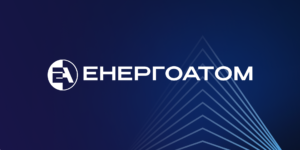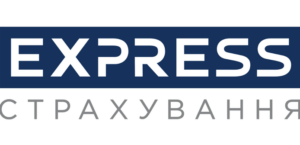
The business community, united by the American Chamber of Commerce in Ukraine (the Chamber), calls on international partners to immediately increase air and sea defense over Ukraine, particularly the Odesa region and critical Black Sea port infrastructure.
Russia continues to destroy and humiliate American businesses in Ukraine. Russia’s recent missile and drone attacks targeting Ukraine and the Odesa region
The current situation poses a direct risk of disrupting global food and commodity supply chains, with far-reaching consequences for international markets and food security, including higher food prices and worsening hunger in vulnerable countries.
While it is difficult to estimate the real-time losses of grain and oilseed exporters, they are currently estimated at hundreds of millions of dollars per month. Without substantial strengthening of air and maritime defense systems, both Ukrainian and international businesses will face critical operational challenges, including the inability to charter vessels and obtain insurance coverage for vessels, crews, and cargo.
The Chamber calls on international partners to urgently strengthen Ukraine’s air and maritime defense in order to save civilian lives, ensure the security of critical infrastructure, ports, and the continuity of global trade and food supply chains.
https://interfax.com.ua/news/press-release/1129438.html
AMERICAN CHAMBER OF COMMERCE, BLACK SEA, PORT INFRASTRUCTURE, UKRAINE

JSC “NAEK ”Energoatom” fully fulfilled its special obligations to ensure the availability of electricity for domestic consumers (PSO), aimed at reducing its cost for the population, covering 100% of the cost of the service from January to November 2025 in the amount of UAH 148 billion (including VAT).
“Energoatom allocated UAH 16.154 billion for the PSO service in November, continuing to bear the key financial burden in the social tariff support system,” the company said on Wednesday.
In the context of military challenges, PSO remains one of the tools for supporting the population.
In total, the projected cost of PSO services for JSC NAEK Energoatom in 2025 is UAH 166 billion (including VAT).
“We would like to remind you that Energoatom covers about 85% of the financial burden necessary to fulfill special obligations to protect the public interest,” NAEK noted.
In 2024, the company paid UAH 153.184 billion (including VAT) for the PSO service.
As reported, in 2024, Energoatom allocated 58% of its net income to pay for PSO. The company’s net profit for the past year amounted to UAH 1.3 billion.
In turn, NAEK’s pre-tax profit for January-September this year amounted to UAH 15 billion 716.90 million, and its net profit was UAH 12.83929 billion, while in the same period last year, the company had a loss of UAH 5.50344 billion and UAH 4.59346 billion, respectively.
As noted in the company’s report, which is available to the Interfax-Ukraine agency, Energoatom’s revenue for the first nine months of this year increased by 33.4% to UAH 173.87386 billion.
Energoatom currently operates nine power units at the South Ukraine, Rivne, and Khmelnytskyi nuclear power plants with a total capacity of 7,880 MW, which are located in territory controlled by Ukraine.
The Zaporizhzhia NPP, with six VVER-1000 power units with a total capacity of 6,000 MW, has not been producing electricity since September 11, 2022, after its occupation on March 3-4, 2022.

Imports of zinc and zinc products in January-November 2025 fell by 11.3% to $48.590 million. In November, imports amounted to $3.070 million.
Zinc exports for the 11 months of 2025 reached $1.166 million, in November — $22 thousand, while in January-November 2024 it was $463 thousand.
In 2024, imports of zinc and zinc products increased by 27.5% to $58.610 million, while exports amounted to $563 thousand.
In 2023, the country increased imports of zinc and zinc products to $45.966 million (+18.8%), while exports fell to $130,000 compared to $1.331 million in 2022.
Pure metallic zinc is used to recover precious metals, protect steel from corrosion, and for other purposes.

According to Serbian Economist, Austrian Palfinger has commissioned production facilities in Niš (southern Serbia), the site produces steel components and subassemblies for a wide range of crane equipment.
According to Tanjug News Agency, the plant employs 179 workers and the employment plan is to grow to 375 in a year’s time.
Palfinger previously announced that it is investing EUR 35.5 million in a component plant in Niš and is gradually expanding production of steel parts and sub-components for different product lines, from cranes to access platforms.
The Serbian Development Agency (RAS) pointed out that the production of the Niš site is export-oriented, including to France, Germany, Austria and Slovenia; the possibility of establishing an R&D center with the involvement of young specialists from the University of Niš was also discussed.
Stabilizers for trucks and other vehicles were named as one of the first areas of specialization of the plant, with further expansion of the product range with new projects. Separately, Palfinger said that the complex is designed to be energy efficient – it plans to install photovoltaic panels on the roof area of about 15,000 square meters, which should provide about 2 MW of peak power upon completion.
Palfinger is an Austrian engineering group operating in the cranes and lifting solutions segment. The company describes the project in Niš as part of the expansion of its European production network, and RAS characterizes Palfinger as a global leader; the group’s key product is articulated truck-mounted cranes (truck-mounted cranes), with approximately 150 models.
https://t.me/relocationrs/1959
Serbia, Palfinger

IC “Express Insurance” (Kiev) in January-November 2025 collected insurance premiums in the amount of UAH 1,1 billion, which is by UAH 267,1 million or by 31,8% more than for the same period of 2024. According to the insurer’s website, premiums under CASCO contracts for this period amounted to UAH 728,8 mln, which is by UAH 71,7 mln or by 10,9% more than in January-November 2024, under MTPL – UAH 357 mln (+120,6%), under other types of insurance – UAH 22,4 mln (+1,6%).
The total amount of insurance indemnities on insured events amohttps://open4business.com.ua/en/in-january-novem…-bln-of-premiums/unted to UAH 465,7 mln, including payments to clients under CASCO – UAH 363,1 mln, to victims under MTPL – UAH 94,3 mln.
As reported, as of October 1, 2025 the assets of IC “Express Insurance” amounted to more than UAH 1 billion, which is by UAH 209,3 million more than a year ago, their share in cash amounted to 87%, which ensures the company’s prompt ability to pay compensation for insurance events.
IC “Express Insurance” was founded in 2008 and is a part of the group of companies “UkrAVTO”. It specializes in car insurance.
According to the NBU, the company ranks 14th in terms of premiums collected in 9M. 2025 among all insurers of Ukraine.

Imports of insulated wires and cables to Ukraine in January-November 2025 increased by 27.8% compared to the same period in 2024, reaching $541.5 million, according to the State Customs Service. In November of this year, imports of these products increased by 23.6% compared to November 2024, reaching $46.3 million, which is 22.6% higher than in October 2025.
Hungary was the largest supplier of wires and cables to the Ukrainian market in January-November, with a volume of $143.1 million (26.4% of imports). China ranks second with $116.7 million (21.6%), followed by Poland with $88.9 million (16.4%). In 2024, the main volumes were imported from Hungary ($120 million), Poland ($74.4 million), and China ($66.3 million, respectively).
According to State Customs Service data, at the end of 2024, imports of insulated wires and cables to Ukraine increased by 9.3% compared to 2023, to $475 million, while exports increased by 60.2%, to $1.275 billion.